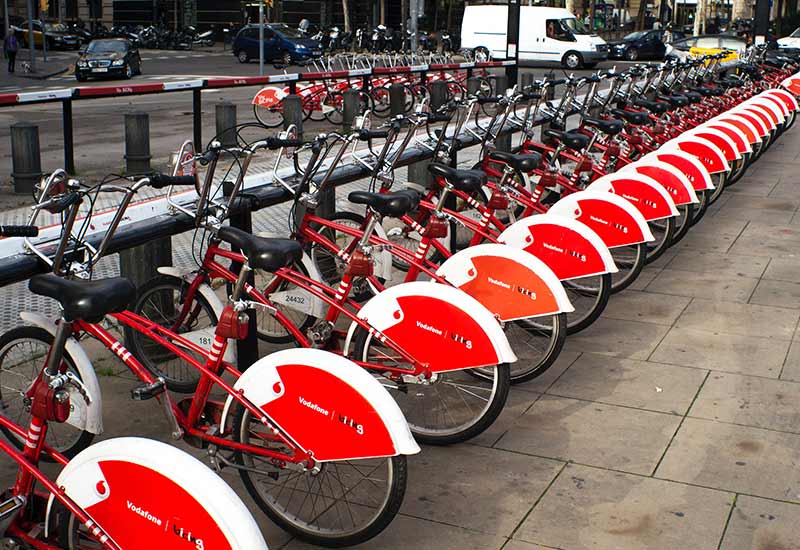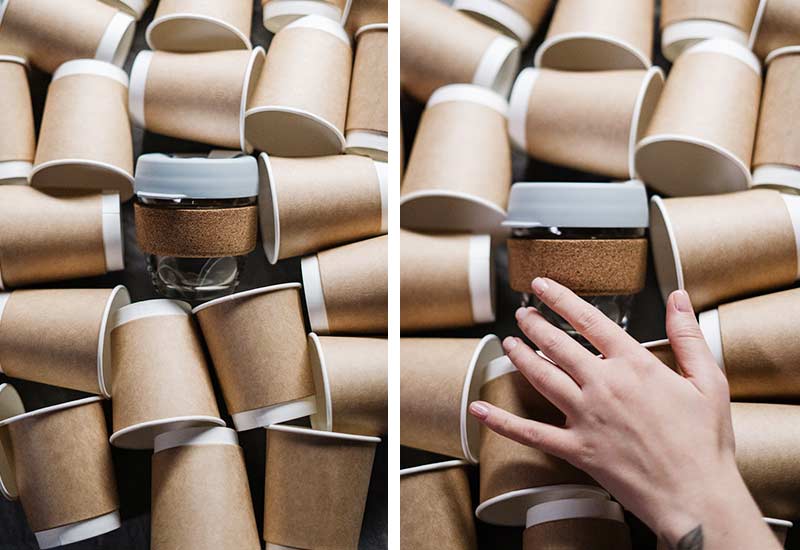What does sufficiency mean in the context of sustainable development? Surely you have heard about the sustainability strategies that should be anchored in politics and business in order to make all of our coexistence more resource-efficient and environmentally compatible, and to improve the Environmental problems of our time to solve.
One of these strategies is sufficiency - this question is representative of this: How can we do less natural resources consume? For an honest answer to this question, we need to find out and assess what we really need and what the right amount is.
In this article, I would like to introduce you to what sufficiency is all about, what examples there are of it, how each of us can live more sufficently, and to what extent sufficiency really means doing without. Let's go!
In advance, you can find a brief overview of the article here:
What does sufficiency mean in relation to sustainability?
In sustainability research, sufficiency (lat. sufficient, genügen) is understood as the effort to achieve a sustainable development through changes in prevailing patterns of consumption and behavior. To achieve the lowest possible consumption of raw materials and energy, to natural Conserve resources.
The existing needs of people are questioned. The aim is to save materials and resources by consuming less and using fewer services.
In simplified terms, the sustainability strategy of sufficiency means, to consume what you really need. Completely in the sense of the Minimalism.
Difference with consistency and efficiency? In the sufficiency strategy, one does not try to make a product more resource-efficient or to replace it in an environmentally friendly way. Instead, the fundamental need to consume the product is questioned in order to simply produce and consume less.
What are good examples of sufficiency?

So how can we Consume fewer resources? Here are some examples of sufficiency to make the concept a little clearer for you:
- Meat consumption: It does not have to be all people vegan live and completely renounce meat and animal products. What is important, however, is a conscious and reduced consumption of resource-intensive meat products.
- Sharing: I don't need my own bike, but share it with others and use it when I need it. In this way, one less bicycle is produced and therefore material is saved. (This also applies, for example, to car sharing or borrowing a drill from a neighbor).
- Tourism: People only go on vacation once a year by plane to reduce climate-damaging CO2 emissions for their own lifestyle. Instead, you relax more in your own sustainable garden or at destinations that can be reached by train.
- Drying laundry: I hang my laundry on the line instead of using the tumble dryer. This saves me energy and on sustainable way also money.
- Heating: Go to sustainable heating also includes wearing thicker clothing indoors in the winter so that less heating energy is needed.
There really are countless examples of sufficiency. If you can think of any others, please write them in the comments. You can also derive some of them from the next paragraph.
Tip: For sufficiency and further Technical terms around the topic of sustainability I have compiled a comprehensive wiki for you. Feel free to have a look.
How can everyone act sufficently?

The Earth Overload Day, that is the one of the Day in the year that we humans have consumed more renewable resources, than the Earth can reproduce in the entire year, basically moves a little closer to the start of the year each year.
So what can each and every one of us change in order to live more efficiently? That's clear, Change is often difficult for us humans! But here are some relatively easy-to-implement measures that mean nobody really has to do without anything.
Concrete tips for more sufficiency in everyday life
- Travel more by train and public transport: This way you can travel in a more relaxed, cheaper and, last but not least, more resource-friendly way. (Tickets are available here at Bahn.de*)
- Think minimalist: Unnecessary Consumption does not make happy - On the contrary. Living in excess takes our well-earned money out of our pockets and subconsciously burdens the soul. (Book Tip: The minimalism project* by Christof Herrmann)
- Save energy: Boil your pasta water in the kettle, for example - and let warm leftovers from your meals cool outside the fridge before putting them inside. These are just a few examples of how to save a lot of Save energy.
- Buy second hand: Of course, buying second-hand also saves resources, as no new product has to be produced. This is the case with clothing, for example (keyword: Slow Fashion) or even with books (you can buy used here at medimops*) very well possible.
- Avoid food waste: While other People starve - we are so full in the western world that we throw away countless tons of edible food. Reduce your food waste so very consciously. For example, by shopping strictly according to a shopping list that only contains the food you really need for the week.
- Think of others: You are not alone in the world. And even if you don't always realize it directly: Your actions have consequences for others. You alone decide every day whether you live at the expense of others or not.
These are just a few ideas as a little inspiration. Even more tips and tricks for sufficiency and a sustainable life can be found in the linked articles.
Acting sufficently means acting responsibly in the interests of all
Politics, the economy and all our actions must focus as much as possible on the Aim of the sustainable sufficiency economy instead of maximizing profits in order to bring about sustainable change.
Whether consuming resources by reducing the demand for goods means doing without? Rhetoric of renunciation is out of place when it comes to not buying or using something you don't need anyway. Basically, you just refrain from destroying your own environment.
In any case, sufficiency does not mean an absolute renunciation, but merely a Adjustment to a healthy level. Healthy for the planet, healthy for us humans and all life on earth. Sufficient action should ultimately enable good living conditions for everyone - including future generations, which may include your children and grandchildren.
For further reading, I can only warmly recommend the book "Rethinking our world: an invitation" (you get here*) by the economist Maja Göpel.
"The world has enough for everyone's needs, but not everyone's greed."
Mahatma Gandhi (more at Environmental protection quotes)
Do you have questions, suggestions, criticism or valuable input on sufficiency, sufficiency policy or resource-friendly consumption in general? Then I'm eager to hear your comments.
Stay sustainable,

PS: Did you know that there are also climate and environmental protection measures where we almost subconsciously tend to act more sustainably? You can find out more about this in the article on the Nudging.







